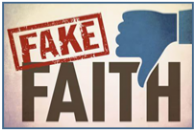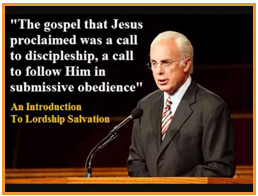John writes his Gospel to the world for the purpose of telling us how we can know with certainly how to receive everlasting life. The only condition he repeatedly mentions is "believe" used nearly 100 times but mentions repentance "0" that's "zero" times. John's silence tells us that repentance is not a necessary condition for receiving everlasting life.
In some cases, repentance is the consequence of believing, not the cause. If someone "believes" then he has as a result "changed his mind", that is, repented. It is not necessary to tell an unbeliever to "change his mind" about Christ. If John did not think it was necessary to tell unbelievers that they needed to repent, then who are we to think that we need to do so. It is only necessary to tell the world to "believe" in Christ for everlasting life.
If "turning from all of your sins" is necessary for salvation, then we are all doomed, for all have sinned, and continue to sin. "If a believer says that he does not sin, he deceives himself, and is not telling the truth" (1 John 1:8). If a saved sinner sins, he then, is to confess his sin, for the forgiveness of sins... which restores his ongoing relationship with God (1:9).
If a saved sinner wanders from the Lord and walks with the world, he is in serious danger of severe discipline from the Lord. The wrath of God is revealed against all ungodliness of men regardless of their eternal destiny. God's wrath can take on many forms--sickness, economic ruin, mental stress, even physical death. To avoid God's wrath the sinner must repent of his sins and begin walking in His Spirit. Free Grace Theology pleads no contest. There is a call to repentance, just not a call to repentance accompanied by or an element of faith for everlasting life.





































